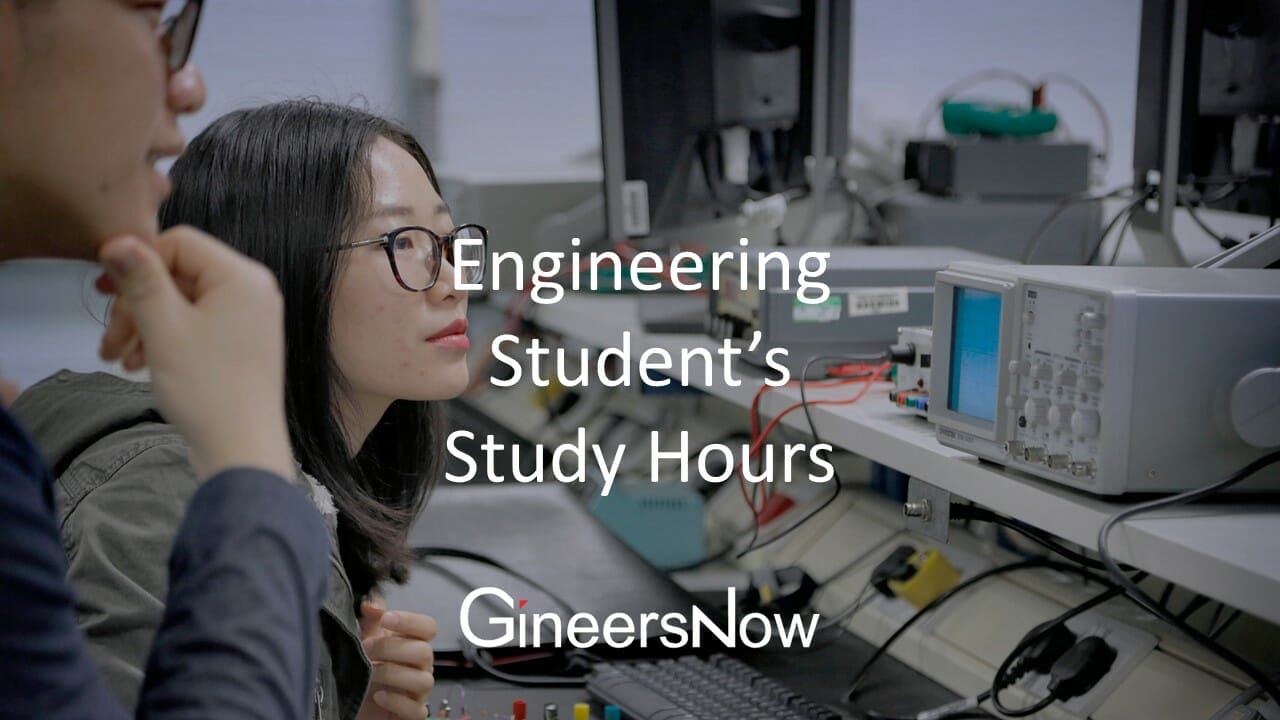An engineering degree can unlock the career and the future of your dreams. The skills and principles you learn in your university years will be carried with you wherever you go. Your performance over the next 3 or 4 years will determine the course of your life. You know how important this is. This is why it can be so utterly devastating when you find out that you’ve failed an important exam, gotten a lower-than-expected grade on a key essay, or underperformed on a crucial project. You may see the doors to the future you’ve dreamed about slam shut before your very eyes. You may assume that you’re destined to live the life of a university dropout who spends their wasted years dreaming of what might have been.
But before you write off your future, stop and take a deep breath. You will get through this! Engineering is a fascinating and rewarding discipline that can unlock a wealth of careers… But there are easier ways to get some letters after your name than studying it. It’s time to step back, re-examine your expectations of yourself, and identify where things went awry. While it may seem like your life is over, dealing with failure in the right way can allow you to bounce back better than ever…
First of all, don’t panic
We human beings have a tendency to catastrophize in the face of bad news, especially when the bad news pertains to something important to us. While we tend to employ this as a coping mechanism to spur ourselves into action, often, it has the opposite effect. We can become paralyzed with fear and unable to think clearly.
Rarely are our failures as cataclysmic as we assume them to be. Failure is rarely the end. In many cases, failure is the motivator that leads to great things. Success can make us complacent, but (to paraphrase Master Yoda) failure can be a great teacher. Rather than run as far away as you can from your failure, you need to dive into it and use it both to inform and motivate a brighter, happier, and more productive new path.
Talk to your tutors
When you’ve been met with a recent failure, you may be reticent to talk to your tutor about it. No matter how far we go in our education and how mature we get as individuals, we can still feel as though we’re back in school and about to receive a stern telling-off from the headteacher. However, being proactive in talking to your tutors is the important first step that will set you on the path to recovery. You can do absolutely nothing by burying your head in the sand.
Your tutors are there to help you, and they are (at least partly) accountable for your performance. For numerous reasons, including good old-fashioned professional pride, they have a personal stake in your success. So don’t be shy. You don’t need to slink back with your tail between your legs. But you do need to approach them in a calm but concerned way and ask them to help you identify where you went wrong and how you can rectify matters.
Ask yourself the right questions (even if you don’t like the answers)
What is engineering if not analytical problem-solving? You need to start applying some of the principles of engineering to your life. Treat the situation like any other project. Something is broken, and you need to apply the right tools and infrastructure to fix it. While your tutor will be able to lend you their support and feedback, nobody else can do this for you.
You need to start out by troubleshooting (an essential skill for engineers), and that means asking a lot of searching questions. Even if you know you won’t like the answers much. Have you been working as hard as you should? Have you been relying on the help and support that’s available to you? Were you focusing on the task at hand, or were you procrastinating? How effectively have you been managing your time?
Engineers rarely fail because they haven’t been working hard enough or because they don’t care enough. They fail because they’re distracted, they haven’t used their time effectively, or they’ve tried to accomplish too much, too fast, and burned themselves out. Often, it’s a combination of all three.
Engineering requires to-the-micron precision. You need to apply the same to your approach.
Identify the cause of distractions
Engineering requires colossal focus and concentration. Distraction can throw off your calculations in ways that take a long time to untangle and rectify by the time you’ve noticed something’s wrong. If there’s something on your mind that’s sapping your concentration, it behoves you to address it. Engineering students are like any other students in this regard. Balancing their academia with other concerns like money, relationships, and self-care is all part of the learning curve.
Still, whatever else is on your mind, there’s always something that can be done about it.
Money worries are part and parcel of the student experience. But if they’ve gotten to the point where they’re distracting you from your course and your prospective career, you need to be proactive about dealing with them. Working just two days a week in a part-time job may be enough to alleviate your money worries without putting significant amounts of money into your work and study time. If you don’t have the time or energy to devote to a part-time job, however, you can still mitigate your money worries by actively finding ways to reduce your spending. Simply changing your SIM card may save you a fortune. SMARTY offers discounts for students that can give you unlimited data for less than £20 a month. Your NUS card or TOTUM student discount card can also save you a lot of money in many shops. Master the art of planning and sticking to a budget, and you’ll be surprised how far your money can go. This student budget planner is a good way for you to take control of your finances proactively.
Other distractions, like relationship issues, are less easy to rectify. However, one piece of evergreen advice we can give is to communicate proactively. Always do your best to repair a situation before you dit down to work. You won’t always be able to do so, but at least you’ll have a clear conscience and be able to focus on your work without distraction.
Make a plan of action
Just like in engineering, you need to take control of all the variables so that nothing is left to chance in your studies. This means making a plan of action for every day and sticking to it to ensure that you are productive and your time is used effectively.
We suggest starting by getting up early. Like, between 5 and 6am early. While this may seem incomprehensible to most undergrads, there are many successful people in all kinds of fields (like Starbucks founder Howard Schultz, Vogue editor Anna Wintour and Apple CEO Tim Cook) who swear by an early start. It allows you to get the day off to a leisurely start. It also allows you plenty of time to prepare and enjoy a nutritious breakfast. And good nutrition is essential for a day of high cognitive performance (as is adequate hydration). So you feel more prepared and less panicked throughout the day.
A schedule may seem constricting at first, but it can actually be quite liberating. It can prevent you from wasting time or procrastinating. It can allow you to get more done in less time, and it ensures that you also have time to give your mind and body a break. Which brings us to…
Schedule downtime

Spending your every waking moment studying or working on problems can actually be hugely counterproductive. Like every other body part, your mind needs rest and sustenance to perform at its peak. And when you wear it out, you may be surprised just how much time gets wasted, even when you think you’re on-task. So make sure you schedule plenty of downtime to allow your brain to recharge. So give yourself some time to do the things that bring you relaxation and fulfillment.
Go for a walk, listen to music, read a book, or play video games. Unless you build downtime into your day, you’ll always find that it gets sacrificed.
Make yourself accountable
Finally, as disciplined and as hard-working as you are, you need to learn to rely on your support network. Make yourself accountable to someone. It doesn’t have to be your tutor. It can be a friend or peer mentor. Someone with whom you can check in, report on your progress and address any issues or bumps that you’ve encountered along the way. Trying to do everything independently is often the surest path to repeat failures.
Failure can be your teacher and your motivator. It’s up to you to take action and deal with it correctly.














